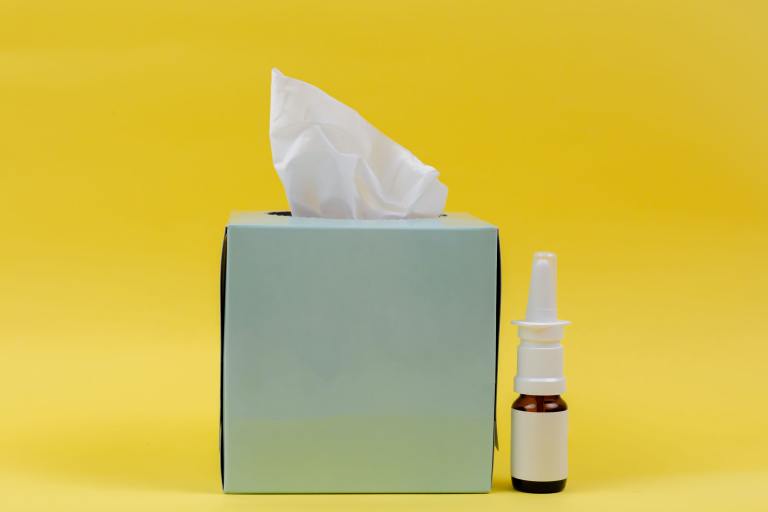Now, you know what the flu is and you’ve seen the stats—here are some ways you can stay safe during flu season.
1. Wash your hands.

Throughout the day, your hands touch many surfaces that could have virus particles or bacteria on them. Washing your hands is a super easy way to prevent germs from entering your body and causing a week of miserable flu symptoms. Everyone, including that sign in the bathroom, tells you to wash your hands. But do you wash them correctly? The CDC came out with an effective 5 step hand washing routine2 :
Wet your hands, turn off the tap, and apply soap.
Lather your hands with soap. Make sure to lather up your whole hand—this includes the backs of your hands, between your fingers, and under your nails.
Scrub your hands for at least 20 seconds.
Rinse your hands.
Dry your hands.
2. Get your flu shot.
The Centers for Disease Control and Prevention (CDC) recommends the annual flu shot for everyone age 6 months or older3 . The flu vaccine reduces the risk of contracting the flu, having severe symptoms from the flu, and developing serious complications from the virus. Since these pesky influenza viruses evolve so quickly, new flu vaccines must be created each year to keep up and better protect you from them. Local pharmacies generally start administering flu shots starting in August and continue up until late March, so you have plenty of time to get one. And yes, in case you were wondering, you can get your flu and COVID-19 vaccines at the same time4 !
3. Sanitize often.
You may not always have a sink near you, so hand sanitizer is the next best thing. Make sure to use an alcohol-based hand sanitizer that contains at least 60% ethanol. In addition to your hands, it is also recommended to sanitize frequently touched surfaces at home, work, or school.
3. Stay home if you’re sick.
If you’re feeling under the weather, don’t go out. If you do need to go out, wear a mask and socially distance yourself. People with the flu can spread it to others up to 6 ft away5 .
4. Avoid touching your eyes, nose, and mouth.
As tempting as it is to rub your eyes or lick your fingers after eating a bag of chips, habits like these should be avoided—especially during flu season. While the flu is commonly spread via air droplets, it can also be spread by touching a surface with the virus on it and then touching your eyes, nose or mouth.
5. Adopt a healthy lifestyle.
It’s not a surprise that eating a healthy diet, exercising regularly, and getting adequate sleep are all vital to good health. A healthier you means a healthier immune system.
6. Cover your sneeze, it’s a breeze.
Most experts believe flu viruses spread primarily through droplets in the air. These droplets can come from an infected person’s cough, sneeze, or mouth while talking. As you can imagine, it’s very important to prevent the spread of the virus by covering your mouth when coughing or sneezing. Consider also wearing a mask when having longer conversations.
7. Get tested if you’re feeling sick.
COVID-19 and the flu can have very similar symptoms, including fever, congestion, and cough. While they can present in similar ways, they do differ when it comes down to treatment and recommendations. Getting tested for COVID-19 and/or flu may be helpful, so you and your doctor can get an accurate diagnosis.










